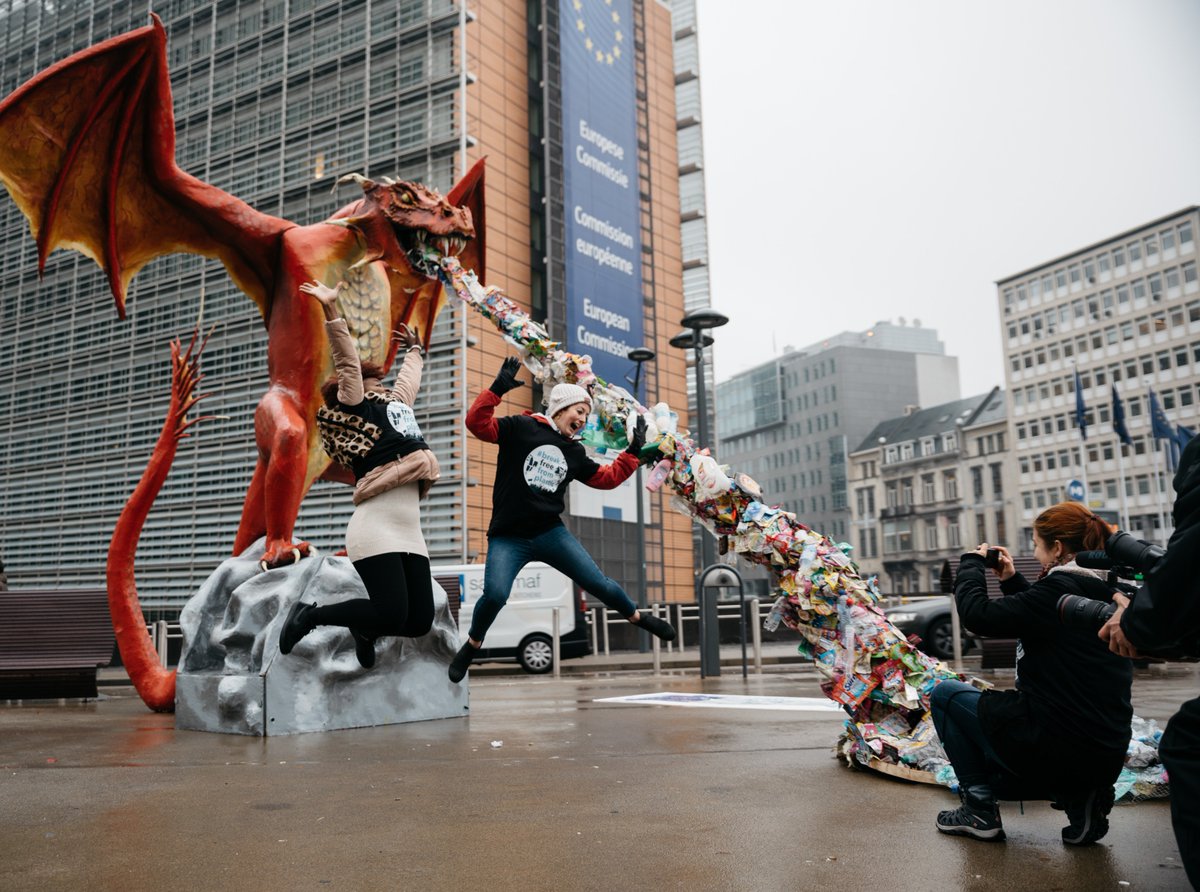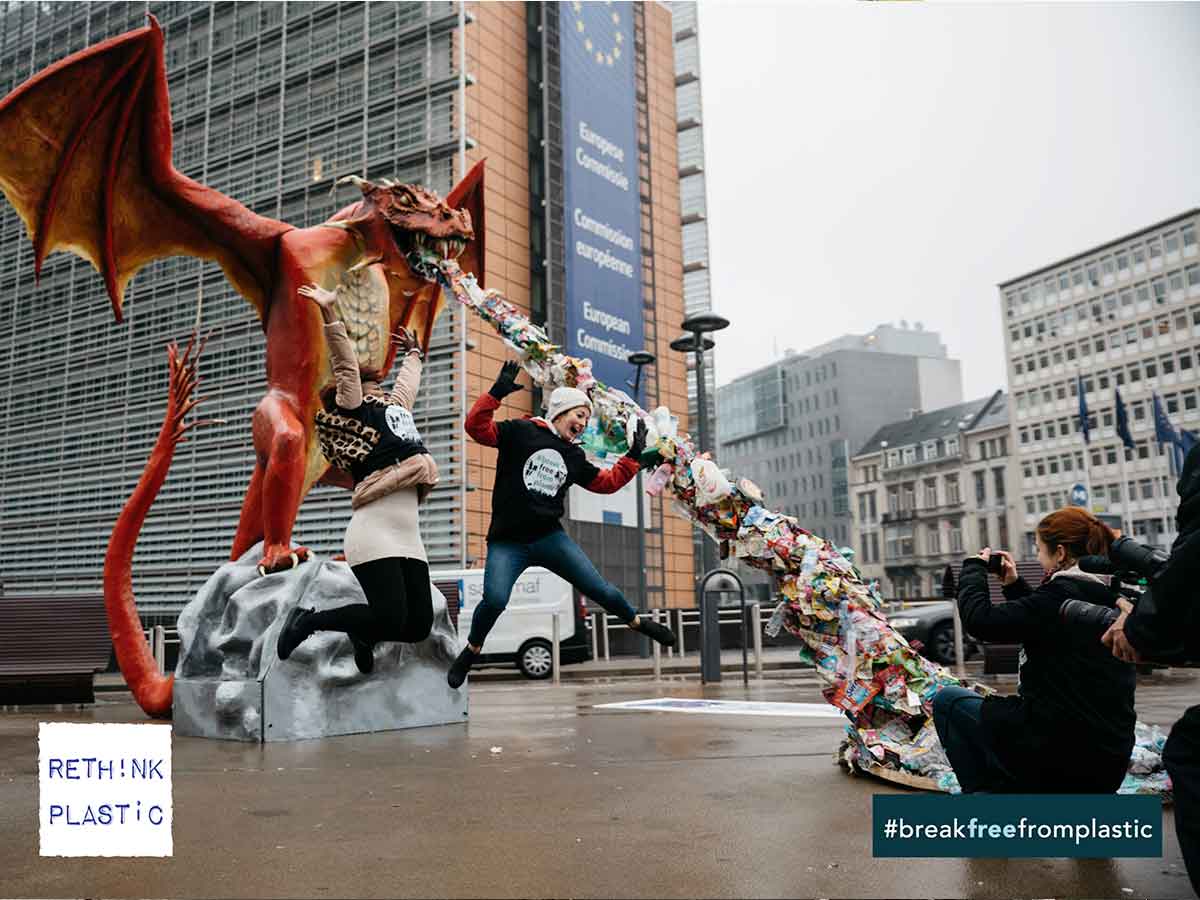FOR IMMEDIATE RELEASE: Brussels, 19/12/2018
After months of intense negotiations, the EU has agreed much-anticipated laws to slash single-use plastics in the EU. The agreed text is a significant step forward in tackling plastic pollution, but does not fully address the urgency of the plastics crisis, according to Rethink Plastic and Break Free From Plastic.
“The EU deserves praise for being the first region to introduce new laws to reduce single-use plastics and slash plastic pollution in our fields, rivers and oceans. What’s less laudable is that the plastics lobby – backed up by some governments – was able to delay and weaken the ambition,” said Meadhbh Bolger, resource justice campaigner at Friends of the Earth Europe on behalf of Rethink Plastic. “Citizens across Europe want to see an end to our throwaway culture and politicians have taken the first step. The time is ripe for Europe to transition away from single-use plastics to reusables.”
The final measures adopted [1] include:
- Bans on several single-use plastic items including plates, cutlery and expanded polystyrene food containers and beverage cups
- Ensuring manufacturers pay for waste management and clean-up of several single-use plastic items, including cigarette butts and fishing gear
However, the agreement falls short of what is needed to fully tackle the plastics crisis in key areas including:
- No binding EU-wide target to reduce the consumption of food containers and cups, and no obligation for EU countries to adopt targets
- A delay of four years on ensuring 90% of plastic bottles are collected separately – from 2025 to 2029
“The new laws are a significant first blow to the plastic pollution monster” said Delphine Lévi Alvarès, European Coordinator of the Break Free From Plastic movement. “However, their impact depends on the implementation by our national governments who must immediately adopt ambitious targets to cut single-use plastics, and ensure producers pay for their pollution. The public call to stop plastic pollution is loud and strong, it is unacceptable to ignore it.”
Tomorrow, December 20, national Environment Ministers are expected to sign off on the agreed Directive. Member States will have two years to transpose it into national laws, which should come into force at the beginning of 2021 at the latest.

BREAKING: We've got a deal!@EU_Commission, @Europarl_EN & @EUCouncil agree unprecedented cuts to #singleuseplastics and take a leap towards a future free from #plasticpollution.
Read our #pressrelease: https://bit.ly/2R37GnU #rethinkplastic #breakfreefromplastic @brkfreeplastic
NOTES:
[1] The measures adopted include:
What’s good:
- A EU-wide ban of single-use plastic cotton buds, straws, plates, cutlery, beverage stirrers, balloon sticks, oxo-degradable plastics, and expanded polystyrene food containers and beverage cups
- Extended Producer Responsibility schemes meaning manufacturers (including big tobacco companies and top polluters from the packaging industry like Coca Cola, Pepsico and Nestle) pay for the costs of waste management, clean up and awareness-raising measures for certain single-use plastics including plastic cigarette filters – the most littered item in Europe (by January 2023 for most items)
- A possibility for EU countries to adopt market restrictions for food containers and cups for beverages
- An obligation for EU countries to reduce post-consumption waste from tobacco product filters containing plastic
- For fishing gear, an Extended Producer Responsibility scheme and a requirement for Member States to monitor collection rates and set national collection targets
- Ensure all beverage bottles are produced from 30% recycled content by 2030
- Labelling on the presence of plastics in a product and resulting environmental impacts of littering, and on the appropriate waste disposal options for that product
What’s not so good:
- No binding EU-wide target to reduce the consumption of food containers and cups, and no obligation for EU countries to adopt targets either; instead, countries must “significantly reduce” their consumption, leaving it vague and open
- A delay of 4 years in achieving the 90% collection target of beverage containers, from 2025 to 2029, with an intermediary target of 77% by 2025
- Allowing for EU countries to choose to achieve consumption reduction and certain EPR measures through voluntary agreements between industry and authorities
- A 3 year delay to make sure plastic drinks containers have their caps/lids attached to the containers – from 2021 to 2024
These measures apply to all single-use plastics listed in the Directive’s Annexes including bio-based and biodegradable plastics.
***
PRESS CONTACTS:
Roberta Arbinolo, Communications Coordinator, Rethink Plastic
roberta@rethinkplasticalliance.eu / +32 2 736 20 91
Meadhbh Bolger, Resource Justice Campaigner at Friends of the Earth Europe
meadhbh.bolger@foeeurope.org/ +32 2 893 1016
Matt Franklin, Communications Officer, Break Free From Plastic
matt@breakfreefromplastic.org / +44 79 23 37 38 31




